Filter by
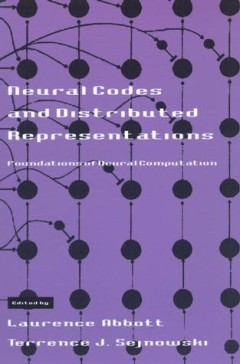
Neural codes and distributed representations :foundations of neural computation
"A Bradford book."Since its founding in 1989 by Terrence Sejnowski, Neural Computation has become the leading journal in the field. Foundations of Neural Computations collects, by topic, the most significant papers that have appeared in the journal over the past nine years. The present volume focuses on neural codes and representations, topics of broad interest to neuroscientists and modelers. …
- Edition
- -
- ISBN/ISSN
- 9780262287562
- Collation
- 1 online resource (xxiii, 345 pages) :illustrations.
- Series Title
- -
- Call Number
- -

H.G. Bronn, Ernst Haeckel, and the origins of German Darwinism : A Study in T…
A revisionist view of the history of German Darwinism examines the translation of Darwin's work and its early reception in Germany. Gliboff tells the story of how Heinrich Georg Bronn translated the book into German, and traces Bronn's influence on German Darwinism through the career of Ernst Haeckel.
- Edition
- -
- ISBN/ISSN
- -
- Collation
- 1 online resource (xii, 259 pages).
- Series Title
- -
- Call Number
- -
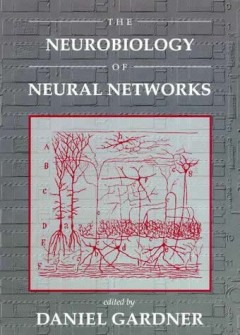
The Neurobiology of neural networks
"A Bradford book."This timely overview and synthesis of recent work in both artificial neural networks and neurobiology seeks to examine neurobiological data from a network perspective and to encourage neuroscientists to participate in constructing the next generation of neural networks. Individual chapters were commissioned from selected authors to bridge the gap between present neural network…
- Edition
- -
- ISBN/ISSN
- 0262290871
- Collation
- 1 online resource (xii, 227 pages) :illustrations.
- Series Title
- -
- Call Number
- -
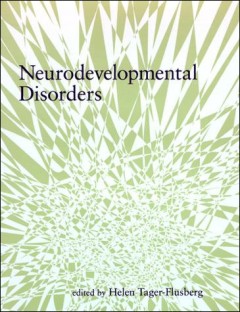
Neurodevelopmental disorders
"Until recently, genetic, neuroanatomical, and psychological investigations on neurodevelopmental disorders were carried out independently. Now, tremendous advances across all disciplines have brought us toward a new scientific frontier: the integration of molecular genetics with a developmental cognitive neuroscience. The goal is to understand the basic mechanisms by which genes and environmen…
- Edition
- -
- ISBN/ISSN
- 9780262284653
- Collation
- 1 online resource (xii, 614 pages) :illustrations.
- Series Title
- -
- Call Number
- -

Systematics as cyberscience : Computers, Change, and Continuity in Science
For all the use scientists make of computers in their work, we still know little about how computing affects their working methods and the knowledge they produce. Christine Hine explores these questions by examining the developing use of information technology in one discipline, systematics (the classification of organisims).
- Edition
- -
- ISBN/ISSN
- -
- Collation
- 1 online resource (x, 307 pages) :
- Series Title
- -
- Call Number
- -
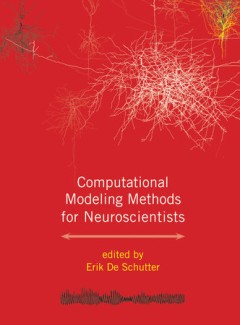
Computational modeling methods for neuroscientists
This is a guide to computational modelling methods in neuroscience covering a range of modelling scales from molecular reactions to large neural networks.
- Edition
- -
- ISBN/ISSN
- -
- Collation
- 1 online resource (xii, 419 pages) : illustrations.
- Series Title
- -
- Call Number
- -

Visual population codes: Toward a common multivariate framework for cell reco…
Vision is a massively parallel computational process, in which the retinal image is transformed over a sequence of stages so as to emphasize behaviorally relevant information (such as object category and identity) and deemphasize other information (such as viewpoint and lighting). The processes behind vision operate by concurrent computation and message passing among neurons within a visual are…
- Edition
- -
- ISBN/ISSN
- 9780262303576
- Collation
- 1 online resource.
- Series Title
- -
- Call Number
- -
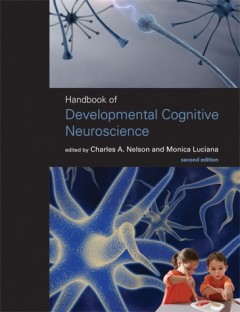
Handbook of developmental cognitive neuroscience / Cognitive Neuroscience (Se…
The second edition of an essential resource to the evolving field of developmental cognitive neuroscience, completely revised, with expanded emphasis on social neuroscience, clinical disorders, and imaging genomics.The publication of the second edition of this handbook testifies to the rapid evolution of developmental cognitive neuroscience as a distinct field. Brain imaging and recording techn…
- Edition
- -
- ISBN/ISSN
- -
- Collation
- 1 online resource (xi, 923 pages) : illustrations (some color).
- Series Title
- -
- Call Number
- -

Toward Replacement Parts for the Brain: Implantable Biomimetic Electronics as…
A Bradford book.""This book has its origins in a meeting, entitled "Toward replacement parts for the brain: intracranial implantations of hardward models of neural circuitry" that took place in Washington, D.C. in August 1989"--Preface.The continuing development of implantable neural prostheses signals a new era in bioengineering and neuroscience research. This collection of essays outlines cur…
- Edition
- -
- ISBN/ISSN
- 9780262268226
- Collation
- 1 online resource (ix, 405 pages) :illustrations
- Series Title
- -
- Call Number
- -
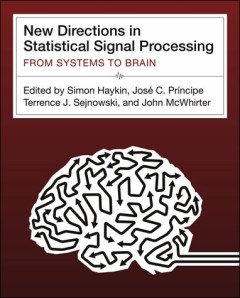
New directions in statistical signal processing :from systems to brain
Signal processing and neural computation have separately and significantly influenced many disciplines, but the cross-fertilization of the two fields has begun only recently. Research now shows that each has much to teach the other, as we see highly sophisticated kinds of signal processing and elaborate hierachical levels of neural computation performed side by side in the brain. In New Directi…
- Edition
- -
- ISBN/ISSN
- 9780262256315
- Collation
- 1 online resource (vi, 514 pages) :illustrations.
- Series Title
- -
- Call Number
- -
 Computer Science, Information & General Works
Computer Science, Information & General Works  Philosophy & Psychology
Philosophy & Psychology  Religion
Religion  Social Sciences
Social Sciences  Language
Language  Pure Science
Pure Science  Applied Sciences
Applied Sciences  Art & Recreation
Art & Recreation  Literature
Literature  History & Geography
History & Geography